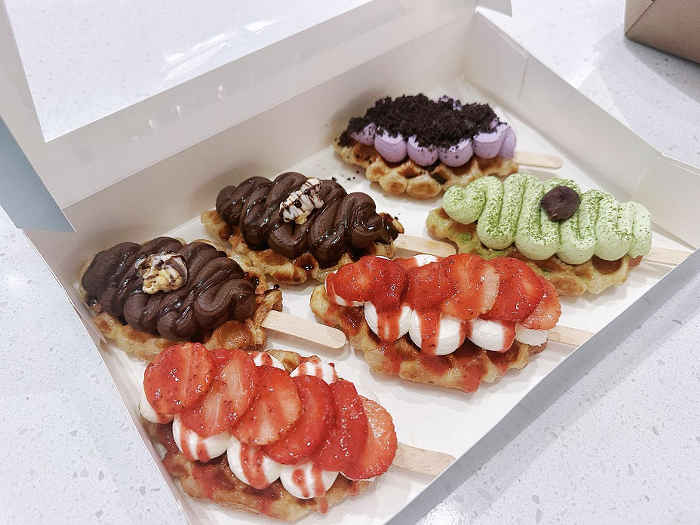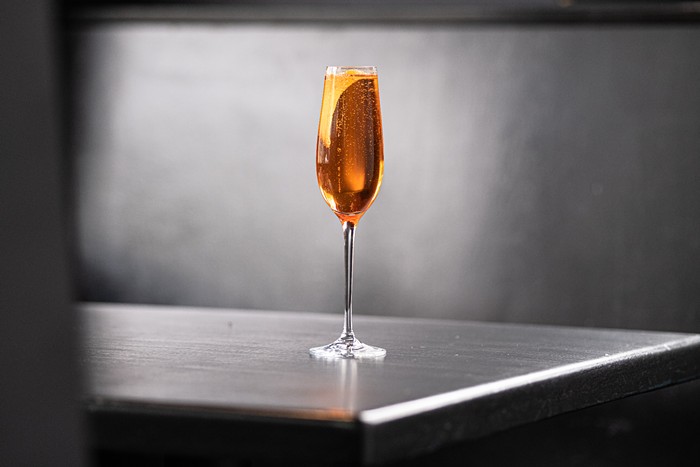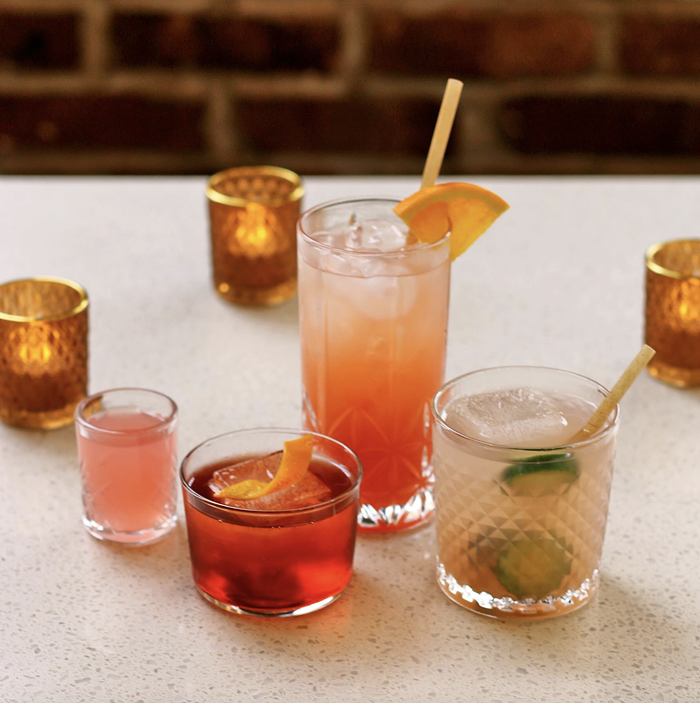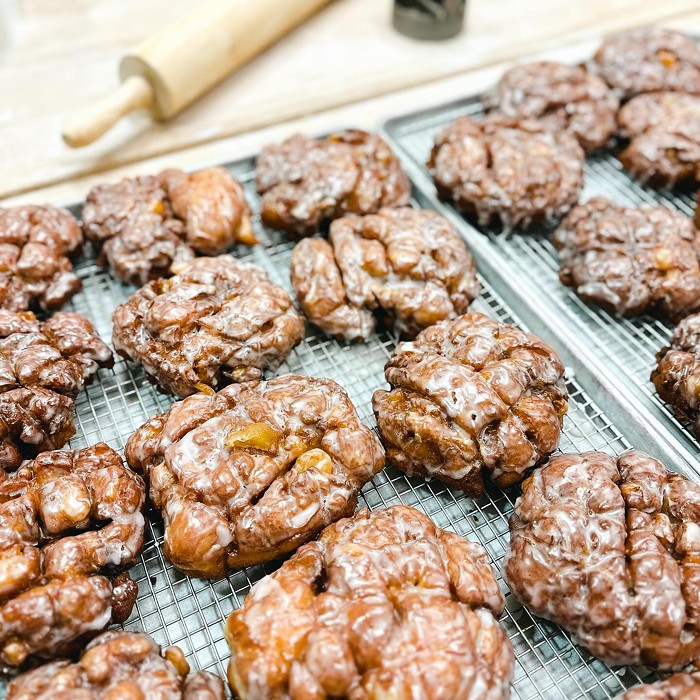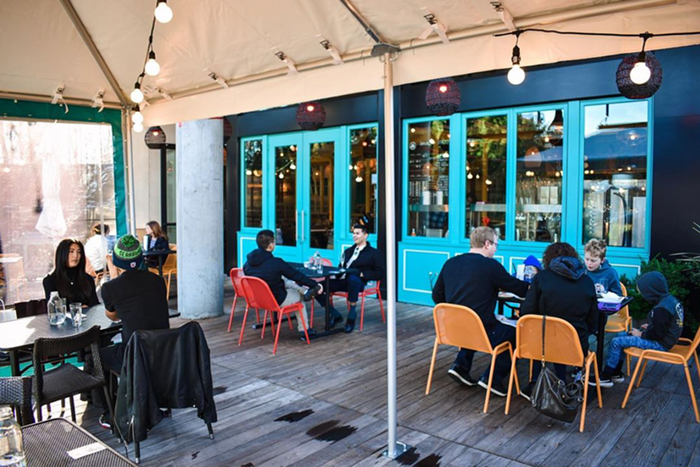No one can really remember the interior of the old Thaiku in Ballard. (You can? You're the only one.) My colleague Anna Minard, who went there at least a dozen times during its near-decade of existence, stared blankly when asked about it, then finally said that it was big and dark and high-ceilinged, kind of, question mark? My friend Jill Lightner, the editor of Edible Seattle, e-mailed: "Thaiku used to be kind of dark, lots of wood beams and really crowded tables. Kind of boring." I only went there once, on an awkward date, and was mostly in the bar, which was so full that we awkwardly sat on top of a table that awkwardly didn't have any chairs. It was dark and big (and awkward, though that wasn't its fault, except for the chairs).
Thaiku used to be where brand-new Ballard Annex Oyster House now stands, and the Thai food was extra-good there; people do remember this. Then it shut down, and it was gone for more than a year. Now it has finally reopened on Phinney, next door to El Chupacabra, in an objectively adorable little bungalow, all light-filled and sweet-feeling. (The happy service, with uniforms that include jean shorts, helps with the latter.) It's got shelves of curios (look for the snake in a jar with another, smaller snake in its mouth!) and slogans in Thai painted on the walls near the cheerful-looking open kitchen (next to the cartoon crab, translated: "Have a crabby dinner"). Upbeat but unannoying Thai pop music plays, alternating with the kind of romantic songs that sound much, much better if you don't understand the language. The bar—still called Fu Kun Wu—is now tiny, with just a handful of seats, but with a welcoming dimness, plus lots more stuff-in-jars to contemplate over your cocktail. Out on the bungalow's porch is a jaunty Thai pedicab, and there's space for summertime outdoor seating, which will be perfect with the bright, spicy, refreshing food. Crabby people on Yelp will tell you that "Anyone expecting the old Thaiku will be disappointed." OMG: The factually different Mai Thaiku—"mai" means "new" in Thai—is NOT EXACTLY THE SAME AS THE OLD ONE! Freak out if you must.
The menu has changed, it's true, but fans who miss their American-Thai-restaurant favorites should take a deep breath and read the note that says off-menu requests are a-okay. Your servers, too, will probably go out of their way to remind you that if you want your damned tom ka gai or fried rice, you may have it (without cursing you). They still have pad thai ($12), but it's golden with tamarind instead of orange with ketchup (yes, really, a lot of places use ketchup), with skinnier noodles and a more refined flavor, plus super-plump, very fresh prawns.
Overall, Mai Thaiku has jettisoned things-smothered-in-coconut-milk in favor of more interesting, more delicious Thai food, the kind from street markets and from the northern region of Isan, which is closely related to Laos. (The tin dishware is also authentic, and the place settings are, too: In Thailand, you use a fork to push food onto a biggish spoon, then into the maw it goes—no chopsticks.) They've got seven versions of green papaya salad ($8–$9), including a Lao one and one with grapefruit-like pomelo. Again, it's perfect warmer-weather food, as is their superlative version of larb ($9), the cooling, spicy salad of ground pork (or chicken, or mushroom) with shallot, green onion, mint, cilantro, roasted Thai chili, lime, and toasted rice powder for a subtle crunch—it's bright and savory and lip-tingling. Same with the yum wum sen ($9), another salad made with skinny, clear bean-thread rice noodles, just like the kind you'll find at street stands in Bangkok (though not as face-meltingly spicy as some versions there). From the grill, there's the usual chicken satay, but also marinated baby squid, Chinese eggplant with tomato and shallot sauce, and more ($2–$6 per skewer); as in many places in Thailand, the whole fish ($14) comes simmering on a silvery, fish-shaped platter. Unlike Bangkok street stands, Mai Thaiku is eschewing all things deep-fried, which is a little bit of a disappointment—it'd be neat to eat what they'd do in lieu of spring rolls here. But if you've never tried Thai sticky rice, now is the time; get it instead of steamed rice, and enjoy the added cuteness of its little woven container (don't be alarmed by the plastic inside—that's normal). And the mango sticky rice dessert here is just great, with any leftovers making for a really good breakfast the next day.
Chef Anne Sawvalak, who is herself from Bangkok, learned to cook from her mom and says that the recipes at Mai Thaiku are based on the ones she grew up with; the only other places in Seattle making such home-style stuff are the street-side stand Little Uncle (if you've never been, go immediately) and also-new Pestle Rock (though so far, their food seems heavier). The only thing I've tried at Mai Thaiku that I didn't love was chicken thighs in an Isan-style herbal broth with Thai eggplant, dill, and chili ($12)—the dill and chili didn't come through much, the chicken tasted rather plain, and the broth was just mild and starchy. It did, however, seem like something your mom might make if you were sick.
To heighten the buzz you'll get from the spicier dishes, Mai Thaiku's bar still specializes in tincture-y cocktails that make various promises of vitality—and yes, the aphrodisiac varieties are still limited to one per person, lest you get too amorous. "Only one!" our server said. "It'll make you—" and here, her English failed, and she waved her hands in a frisky way. (If I tried one of these back in Ballard, it was not at all memorable, and it definitely had no measurable effect on the awkward date.) The Yohito ($8)—a mojito made with the additional "strong medicine" of yohimbe, a West African tree bark—was a pretty pale orange, served in a pint glass with lots of fresh mint and ice, and had a little tinge of ligneous bitterness behind the limey-rum-sweet. We asked about the yohimbe, and our server brought out the bottle for us to look at—same with the snake. It (the drink, not the snake) went down very easy, and gave everything a possibly psychosomatic but very pleasant extra sparkle, with the room becoming particularly vivid, the spring-evening sunlight almost liquid. The meaning of the Thai sentence next to the outline of the person with a question mark on the wall in the back is, roughly, "I love/want/desire the chef." By the end of a stay here, you may feel, however momentarily, that this is true of you. ![]()

